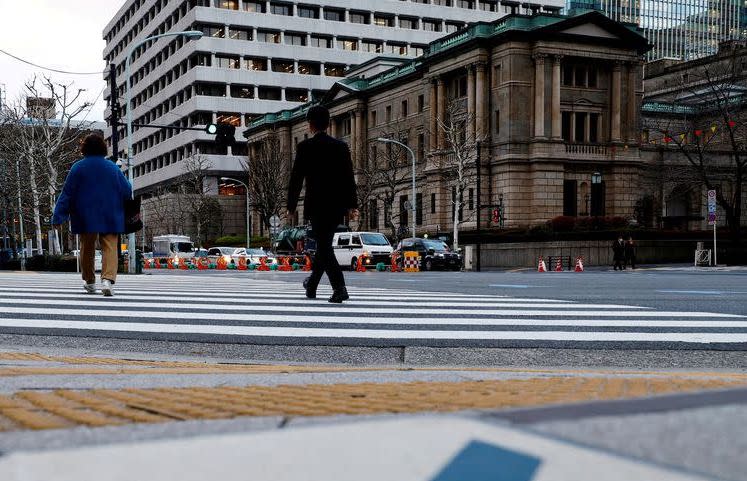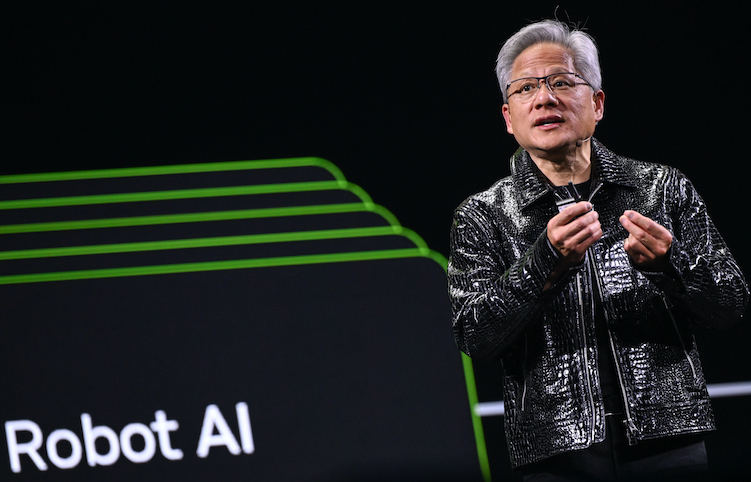Comments by key Bank of Japan officials has heightened speculation that the central bank is set to end its long-running negative interest rate policy.
The BOJ governor and one of its board members said on Thursday that the economy was moving towards the central bank’s 2% inflation target.
The remarks came as Japan’s largest trade union group Rengo said average wage hike demand hit 5.85% for this year, topping 5% for the first time in 30 years and raising prospects of a broad-based pay rise that the BOJ set as a prerequisite for a stimulus exit.
ALSO SEE: China Sees Better Than Expected 2024 Trade Growth
BOJ board member Junko Nakagawa said the country’s intensifying labour shortages were prodding more companies to resume their practice of increasing pay annually, signalling conviction that conditions for phasing out the central bank’s massive stimulus were falling into place.
“We can say that prospects for the economy to achieve a positive cycle of (rising) inflation and wages are in sight,” Nakagawa told business leaders in the southwestern city of Matsue.
“There are clear signs of change in how companies set wages. Japan is moving steadily towards sustainably and stably achieving our 2% inflation target,” she said.
Yen at one-month high to dollar
The remarks came amid growing market expectations that the BOJ could exit negative interest rates this month, fuelled in part by a media report on Wednesday that at least one of its board members could call for such an action this month.
The growing momentum for a March stimulus exit lifted the yen to a one-month high against the dollar, and pushed up government bond yields, a trend that continued on Thursday.
Analysts have tipped either the March or April meetings as possible timings of the pivot. Back in mid-February, most polled by Reuters saw April as far more likely because that is when the BOJ produces fresh quarterly growth and inflation forecasts.
Nakagawa’s remarks follow those of fellow BOJ board member Hajime Takata, who said last week Japan was finally seeing prospects it could durably achieve the central bank’s 2% inflation target.
BOJ governor Kazuo Ueda added to the hawkish chorus later on Thursday, saying the likelihood of achieving the central bank’s inflation target was gradually rising.
“If we confirm that a positive wage-inflation cycle is strengthening, we can examine modifying our massive monetary easing measures,” he told parliament.
Ueda also elaborated on how the BOJ could guide policy after exiting negative rates, suggesting it was actively brainstorming ways to smoothly end its prolonged ultra-easy policy.
For one, the BOJ will pay interest on reserves financial institutions park with the central bank, and use that as a tool to control short-term interest rates, Ueda said.
He also said that regardless of whether the BOJ ditches or maintains yield curve control, it will continue to buy enough long-term bonds to avoid any abrupt spike in yields.
To dial back stimulus
Despite recent weak signs in the economy, BOJ policymakers have signalled their intention to move ahead with plans to dial back stimulus.
Real wages shrank in January for the 22nd straight month but at the slowest pace in over a year, data showed on Thursday, as price pressures from rising raw material costs dissipated.
To keep inflation sustainably around 2%, the BOJ guides short-term rates at -0.1% and sets a 0% target for the 10-year bond yield under a policy dubbed yield curve control (YCC).
Governor Ueda has said the outcome of this year’s annual spring wage negotiations will be key to how soon the BOJ can phase out the monetary easing measures.
Big firms will settle their wage negotiations with unions on March 13, days before the BOJ’s policy meeting on March 18-19.
While pointing to some positive signs on the wage outlook, Nakagawa said there was a risk that wages fail to rise enough and hurt household sentiment, thereby cooling consumption.
“Consumption appears weak in both real and nominal figures” she told a briefing. “It’s also important to note that wage hikes, and hopes of continued wage increases, will likely underpin consumption.”
- Reuters with additional editing by Jim Pollard
Read more:
Nikkei Boosted by Steadfast BoJ, Tech Drives Hang Seng Up
Japan’s Salaries Surge Could See BoJ Turn to Tightening
Yen, Inflation Stresses ‘Could Force BoJ to Tighten This Year’
BOJ Not Afraid of Cost of Phasing Out Stimulus, Ueda Says
























